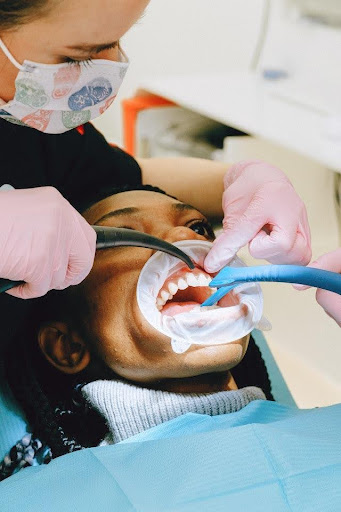Menstruation is the discharge of blood and mucosal tissue from the inward coating of the uterus through the vagina of a woman. Each month, one of your ovaries releases an egg to be prepared by a sperm. On the off chance that fertilization doesn’t happen, the thickened uterine wall sheds as a typically 28-day cycle that is menstruation. Usually, young ladies have their most memorable menstrual cycle, menarche, during their adolescents. Menopause, which most ladies experience during their late 50s, marks the finish of the menstrual cycle or the regenerative years. Unstable menstrual hygiene practices during this time can lead to rashes, irritation, and hostile scent.
All in all, what would it be a good idea for you to do to guarantee a clean and sanitary period? We share a few prompts.
Pick shrewdly
Whether you decide to wear a pad, tampon, or a menstrual cup, make sure it is clean, unopened, and discarded appropriately. Use items made from natural filaments like cotton. Manufactured weaves will generally cause allergies and rashes in and around the perineal area (between the anus and vaginal opening). In case of a menstrual cup, make sure you pick the right size and disinfect it before and after use. Never forget to wash your hands before and after utilizing sanitary items.
Change sanitary items at regular intervals
You can change your menstrual cup each 10 to 12 hours, contingent upon your stream and comfort. Sanitary napkins or tampons notwithstanding, ought to be changed at least like clockwork. Try not to wait for your pad to get completely soaked, as blood acts as a supplement hotspot for bacteria to develop and cause vaginal or urinary tract diseases and rashes.
Wash completely
While on period, blood may enter small overlays and spaces like the labia in the genital area. Whenever left there for excessively lengthy, it can cause bad smell. You would have to wash yourself completely with clean water to eliminate overabundance blood before you change into another pad. Make sure to always wash yourself from front to back (from the vagina to the anus) and not the alternate way round. This will get bacteria far from the urethra and decrease chances of contracting a urinary tract disease.
Bath regularly
Bathing helps clean your body along with the private parts. A warm water bath can ease menstrual cramps and backaches, while elevating your temperament and making you feel less bloated.
Try not to utilize soaps or vaginal hygiene items
The vagina is a self-cleaning organ and contains many great bacteria that shield you from contaminations. Bacteria, for example, lactobacilli assist with keeping the vaginal pH acidic, ie, underneath 4.5, which forestalls the development of different organisms. Soaps and vaginal hygiene items may have an adverse impact on the vaginal pH. You can utilize gentle soap on the external genitalia (vulva), yet never in your vagina. Washing with plain water is all you want to keep your vagina healthy.
Stay dry
You may think pad rash is normal, however it happens when there is a lot of wetness or heavy stream. Abused pads will generally rub on your skin, causing chafing and rash. It’s suggested that you stay as dry as conceivable by changing sanitary napkins or tampons as every now and again as necessary. In case you get a rash, wash with clean water and apply antiseptic powder or an antibacterial gel or cream. On the off chance that the rash declines, counsel a specialist.
Discard sanitary items appropriately
Always wrap your pads and tampons in paper before discarding them, so they don’t spread disease and bad smell. Never wash them away for good — they can break down the pipes. Never forget to wash your hands after discarding them.
Utilize each hygiene item in turn
Many ladies will quite often utilize two pads or consolidate pads and tampons during their menstrual cycle to avoid changing habitually. In any case, this is poor menstrual hygiene. It can lead to diseases and rashes, and even cause Poisonous Shock Condition (TSS), where abundance of bacteria releases poisons and can bring about high fever, low pulse, and dangerous sepsis.
Wear comfortable dress
Wear clean cotton panties and comfortable free dress to allow air stream and forestall sweating. This will assist with alleviating the discomfort that frequently accompanies the period.
Carry extra pad/tampon
During your periods, carry extra pads or tampons with the goal that you can change on time. Make sure to store the items in a pocket so they are not presented to bacteria, consequently raising the chances of disease.
Utilize a condom during sex
The chances of getting pregnant while you are on your period is low, but they are not zero. By utilizing a condom you not just forestall the gamble of getting pregnant, you also safeguard yourself from sexually transmitted disease (sexually transmitted disease). Condoms give a barrier against sexually transmitted diseases, for example, chlamydia, genital herpes, gonorrhea that are transmitted through body liquids.
Sound menstrual hygiene is essential for your overall prosperity and conceptive health. It will also save you from acute discomfort and assist you with approaching your daily everyday practice without feeling jittery and unclean.




